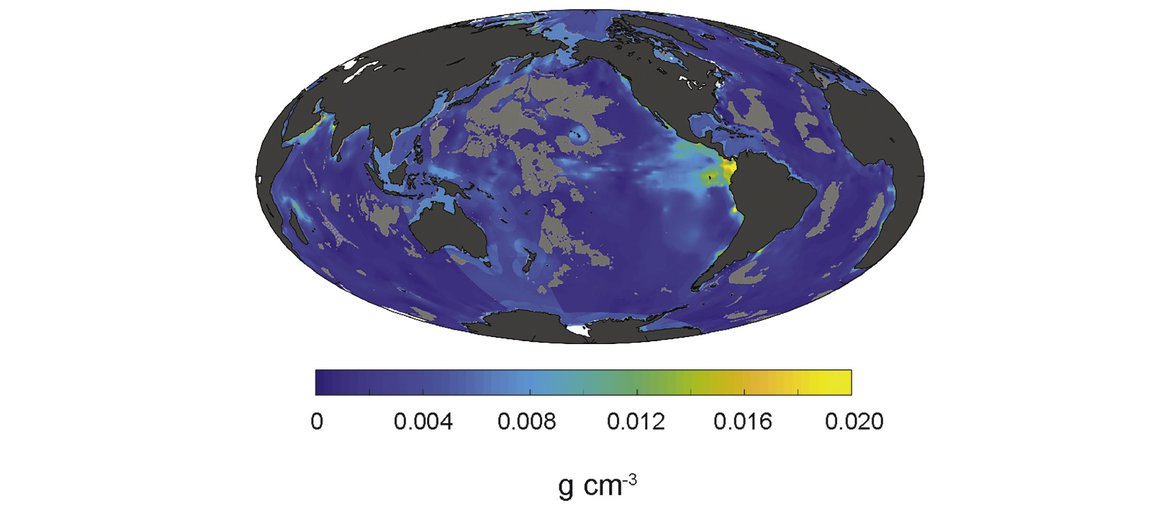
May 7, 2020
Research Highlight
Insights into the Fate of Organic Carbon in Marine Sediments

Concentration of particular organic carbon (POC) at 10 m below the seafloor (LaRowe et al. 2020)Image credit: LaRowe et al. (2020) DOI: 10.1016/j.earscirev.2020.103146.
Researchers supported in part by the NASA Astrobiology program have published a review of how recent studies are changing perspectives of the degradation of organic matter in marine sediments. This cache of organic carbon is a critical component of Earth’s global carbon cycle, and is important in shaping our planet’s habitability. Much of the previous research has focused on processes that promote and hinder degradation, and less attention has been paid to studying what controls the distribution of carbon in sediments.
The authors of the recent study posit that a shift has occurred in recent thinking, from a structurally-based chemical reactivity viewpoint toward a view that includes the role of the ecosystem in organic carbon degradation rates. This shift includes aspects of the ‘molecular revolution’ in biology, discoveries on the limits of life, advances in quantitative modeling, paleo studies of ocean carbon cycling, novel analytical techniques, and interdisciplinary efforts. The authors outline a broad view of the topic that is spread across multiple scientific disciplines related to marine sediments and global carbon cycling.
The paper, “The fate of organic carbon in marine sediments – New insights from recent data and analysis,” was published in the journal Earth-Science Reviews. The work was supported in part through the NASA Astrobiology Institute (NAI) element of the NASA Astrobiology Program. Additional support came from the NASA Astrobiology Postdoctoral Program , and a joint activity supported by the National Science Foundation (NSF) and NASA Astrobiology entitled the Origins of Life Ideas Lab.